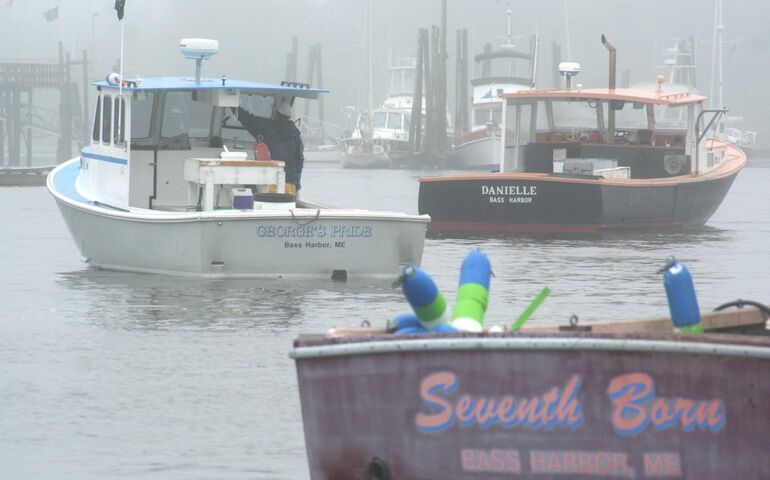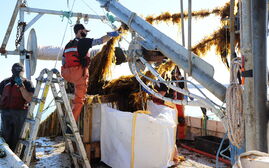With development encroaching, state law passed to protect working waterfront
 File photo / Laurie Schreiber
Saving working waterfront properties from conversion to non-commercial uses is one way to protect Maine’s fishing heritage, say advocates of a working waterfront access protection program.
File photo / Laurie Schreiber
Saving working waterfront properties from conversion to non-commercial uses is one way to protect Maine’s fishing heritage, say advocates of a working waterfront access protection program.
A new law is expected to greatly expand opportunities for protecting Maine’s remaining working waterfronts.
“This new law will allow Maine’s coastal land trusts the opportunity to conserve these properties, and land trusts have the resources and skills to help us accomplish this important goal,” said state Rep. Morgan Rielly of Westbrook, who sponsored LD 574, "An Act to Amend the Laws Governing Working Waterfront Covenants."
It was signed into law by Gov. Janet Mills on May 8.
Maine’s fishing industry accounts for nearly $1 billion in annual revenues, but it’s an industry under pressure from many sides, Rielly said.
“Saving Maine’s working waterfront properties from conversion to non-commercial uses is one way to protect our fishing heritage,” he added.
The primary mechanism for preserving the working waterfront in perpetuity is the Working Waterfront Access Protection Program funded by Land for Maine’s Future in partnership with the Maine Department of Marine Resources. According to the Island Institute, this is a competitive program through which the state buys the development rights on a piece of working waterfront from the owner to ensure future development will not limit commercial marine use.
Since 2008, 34 properties have been preserved through the program. With the new law, land trusts can now provide a vehicle for private sector partners to work together to mobilize additional funding sources and act more nimbly to save working waterfront properties.
“Maine’s iconic working waterfronts are the backbone of our coastal economy, and Maine’s land trusts are proven experts in property conservation,” said Nick Battista, chief policy officer at Island Institute. “This important legislation holds great promise for keeping Maine’s coastline working and thriving for generations to come.”
Expanding eligibility for this type of conservation to land trusts is particularly important in urgent, emergency sale situations where multiple parties must move quickly to put together the funding and structure and close the deal, he said.
Landowners might also prefer their local land trusts to hold the development rights for their property rather than a state agency.
“As a coastal land trust, we see firsthand the development pressure threatening working waterfront,” said Julia McLeod, executive director at Harpswell Heritage Land Trust. “This bill gives us a new avenue to support our town and address real community needs.”
According to the Island Institute’s 2021 report “The Critical Nature of Maine’s Working Waterfront and Access to the Shore,” pressures on working waterfront include a long-time trend of coastal real estate becoming too expensive for local residents to afford, and an influx of people coming to the state who may not understand or appreciate the importance of our marine industries.













0 Comments